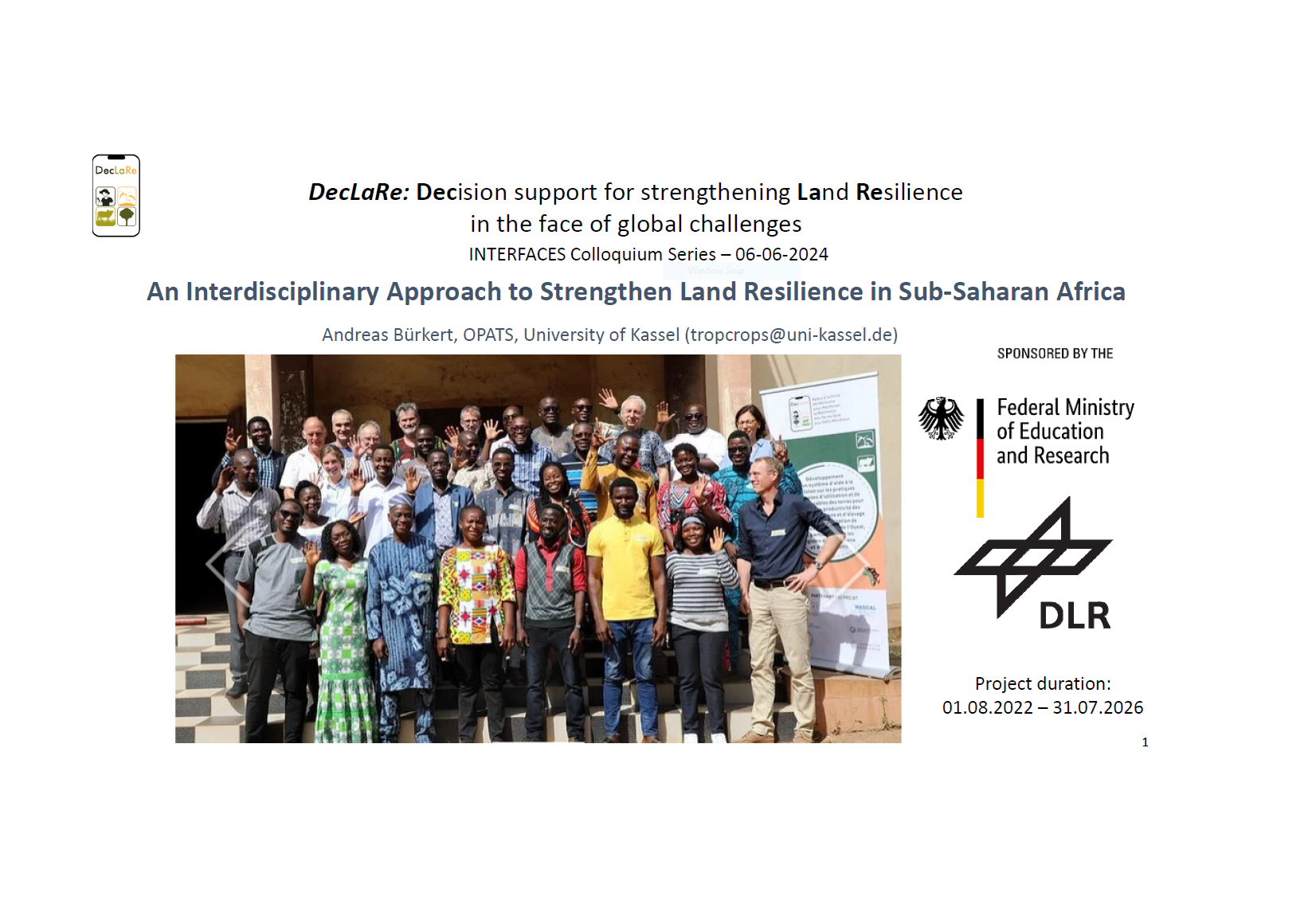The ninth INTERFACES colloquium took place on 6 June 2024. Prof. Andreas Bürkert, Kassel University, presented recent results from the regional research project “Decision support for strengthening land resilience in the face of global challenges” (DecLaRe) under the title “Interdisciplinary Approach to Strengthen Land Resilience in Sub-Saharan Africa”.
Andreas Bürkert started the presentation by introducing the various facets of the DecLaRe project which lives from its many PhD students and Postdocs who look at various aspects of agricultural systems with the aim of providing decision support. Small-holder farmers in West Africa suffer from both climate change and the “privatization” of the commons, the conversion of public land to private (and often fenced-in) plantations. The project focusses on Northern Ghana and Benin as key research countries.
In the presentation, recent results from micro-dosing research in agroforestry systems, food technology (“wagashi”cheese making), and land tenure in land resilience in sub-Saharan Africa in the face of global challenges were presented and rounded up with information about progress in crop and agroforestry modelling, for example for water demand.
The very lively discussion provided room for clarification and additional information, especially on the concept of micro-dosing, where only 1.5g NPK fertilizer is placed directly to the crop (sorghum, millet or maize) – which is important to allow for successful crop yield in the very depleted soils of West Africa where organic fertilizer alone will not be sufficient for adequate crop yields. If necessary and available, farmers can apply additional organic fertilizer once the crops had a kick-start. While this may mean more work for the farmers, they appreciate the benefits of the technology in weighing costs and benefits. Further topics discussed were the different land and tree tenure systems that interplay in the region and have effects on agricultural innovations, the difficulties of dealing with gender disaggregated use rights especially for trees and the participatory land tenure mapping carried out in Benin.
Overall, the presentation of the holistic approaches by DecLaRe provided an excellent view on the various challenges faces by smallholder farmers in Northern Ghana and Benin and triggered an invitation by Minodu for closer collaboration in Togo.
